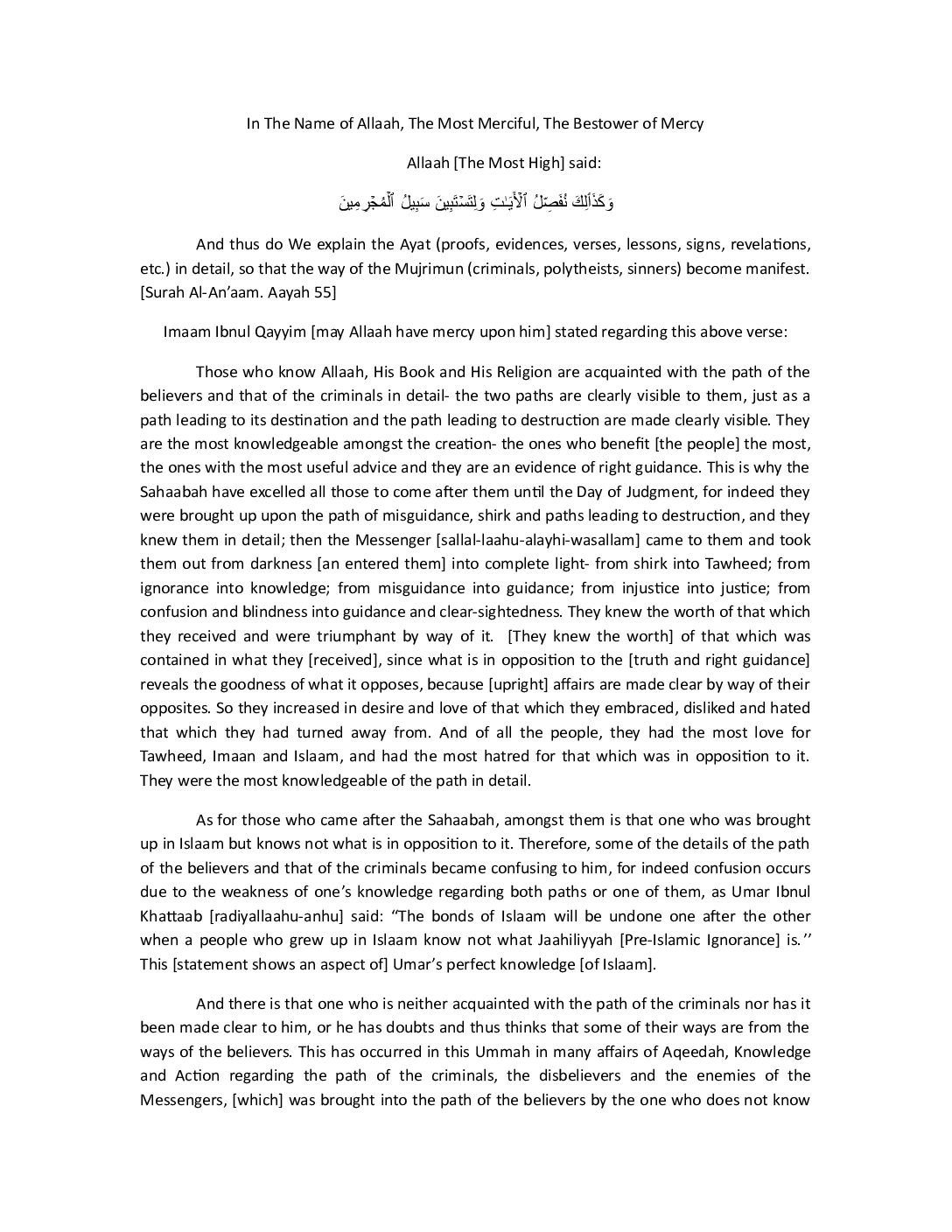In The Name of Allaah, The Most Merciful, The Bestower of Mercy.


The Imaam [rahimahullaah] stated that one should beware of kadhib [lying], for indeed it corrupts one’s ability to illustrate information based on what it should be in reality. It corrupts one’s ability to illustrate information and his ability to teach the people. The liar portrays what is non-existent as something present and what is present as something non-existent. He portrays truth as something false and falsehood as something true; he portrays good as evil and evil as good, so this corrupts his conception and knowledge, which then becomes a punishment upon him. Then he portrays what is not true to the one deceived by him – the one who is inclined towards him- so he corrupts his conception and knowledge. The soul of the liar turns away from the existing reality -inclined towards what is non-existent and gives preference to falsehood.
And when his conception and knowledge is corrupted, which is the basis of every wilful chosen deed, his deeds become corrupt and marked by lies, so those deeds would emanate from him just as lies emanate from the tongue- he neither benefits from his tongue nor his deeds. This is why lying is the basis [or foundation] of immorality, just as the Prophet [sallal-laahu-alayhi-wasallam] said, “Indeed lies lead to immorality [or wickedness] and indeed immorality [or wickedness] leads to the fire. [Bukhaari 2606/2607]
Firstly lies emerges from the heart and then on the tongue, so it corrupts it; then it transfers to the limbs and corrupts its actions, just as it corrupts the statements of the tongue. Therefore, lying prevails over his statements, deeds and state of affairs; corruption becomes deeply rooted in him and its disease leads to destruction if Allaah does not grant him cure him with the medication of truthfulness, which uproots its (i.e. lying) from its original source.
This is why the basis [or foundation] of all the deeds of the hearts is based on truthfulness; and the basis of their opposites – such as showing off, self-amazement, pride, being glad [with ungratefulness to Allaah’s Favours], conceitedness, boastfulness, insolence, weakness, laziness, cowardice, disgrace and other than them- is lies. The origin of every righteous deed- whether carried out in private or public- is based on truthfulness. And the origin of every corrupt deed – whether carried out in private or public- is lies.
Allaah punishes the liar by preventing him from those affairs that will bring him well-being and benefit, and He rewards the truthful one by granting him the ability to attain the beneficial affairs related to the worldly life and afterlife. There is nothing similar to truthfulness with regards to the manner in which it bring about the affairs of wellbeing in this life and the next, and there is nothing similar to lying with regards to the manner in which it corrupts and harms one’s worldly affairs and the afterlife. [Allaah (The Most High) said]: [ يَا أَيُّهَا الَّذِينَ آمَنُوا اتَّقُوا اللَّهَ وَكُونُوا مَعَ الصَّادِقِينَ – O you who believe! Be afraid of Allah, and be with those who are true (in words and deeds) [9:119] [هَٰذَا يَوْمُ يَنْفَعُ الصَّادِقِينَ صِدْقُهُمْ ۚ- This is a Day on which the truthful will profit from their truth. [5:119] [ فَإِذَا عَزَمَ الْأَمْرُ فَلَوْ صَدَقُوا اللَّهَ لَكَانَ خَيْرًا لَهُمْ – And when the matter (preparation for Jihad) is resolved on, then if they had been true to Allah, it would have been better for them. [47:21]
وَجَاءَ الْمُعَذِّرُونَ مِنَ الْأَعْرَابِ لِيُؤْذَنَ لَهُمْ وَقَعَدَ الَّذِينَ كَذَبُوا اللَّهَ وَرَسُولَهُ
سَيُصِيبُ الَّذِينَ كَفَرُوا مِنْهُمْ عَذَابٌ أَلِيمٌ
And those who made excuses from the Bedouins came (to you, O Prophet) asking your permission to exempt them (from the battle), and those who had lied to Allah and His Messenger sat at home (without asking the permission for it); a painful torment will seize those of them who disbelieve. [9:90]
[Source: Al-Fawaa’id’ pages 202-203. Paraphrased. Refer to Arabic text]






